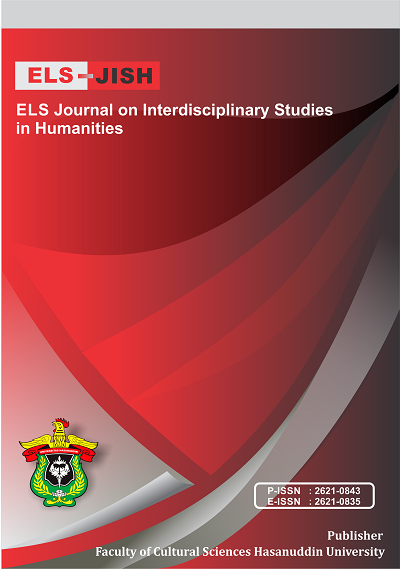A Needs Analysis of Computer and Network Engineering Program in Mataram Vocational Schools
DOI:
https://doi.org/10.34050/elsjish.v3i4.12284Keywords:
Needs Analysis, English Textbooks, Vocational SchoolsAbstract
The study is to reveal the significant different between the learning in Vocational School and in general Senior High School. The appropriate teaching-learning processes are based on their needs. The data in this study were qualitative descriptive data obtained through interviews and questionnaires. The questionnaires were distributed to the students and alumni of computer and network engineering program students. The data analyzed qualitatively. The aim of this study was to identify some factual information about the needs of vocational students in learning English, especially in the English-language skills (Listening, Speaking, Reading and Writing) and some of language components in English (Grammar & Vocabulary), and to analyze the conformity between the content of English textbooks with the vocational students’ needs. The subjects in this study were the vocational students and English textbooks, both SBC and Curriculum 2013 edition, of 4 (four) SMK which organized the TKJ department in Mataram. The results showed that the needs of students towards learning English is to meet the academic professions and the future needs of the students, which involved the skills of the language and some of the language components. Whereas in the case of conformity between the content of the English textbooks and the vocational students’ needs, it was found that the English textbooks was more focused on describing the English language competences generally and not directed to the Department of TKJ itself.
References
Alexander, F. (2013). Understanding Vocabulary.[Online]. Available at: www.scholastic.com. [December 1, 2018]
Badan Standar Nasional Pendidikan/BSNP .(2006).
Bada, E. & Okan, Z. (2000).Student’s Language Learning Preferences. TESL Journal Vol. 4 No.3. [Online]. Available at: http://www.writing.berkeley.edu/TESLEJ/ej15/a1.html
Beccy. (2013). Why Language Students are Reluctant to Speak?[Online]. Available at: www.kanzilingua.com. [December 2, 2018]
Benesch, S. (2001). Critical English for Academic Purposes: Theory, Politics, and Practice, Mahwah/New Jersey: Lawrence Erlbaum Associates, Publisher.
Carkin, S. (2005). English for Academic Purposes. In E. Hinkel (Ed.), Handbook of Research in Second LanguageTeaching and Learning (pp. 85-98). Mahwah, NJ: Lawrence Erlbaum.
Darmadi, Hamid.( 2011). Metode Penelitian Pendidikan.Bandung:Alfabeta.
Dudley-Evans, T., & St. John, M. J. (1997). Developments in English for Specific Purposes. Cambridge: Cambridge University Press.
Harmer, J. (2007).How to Teach English.Longman. England.
Hutchinson, T., & Waters, A. (1987). English for SpecificPuposes: A Learning CentredApproach. Cambridge: Cambridge University Press.
Kurniawan and Kurniawan,(2008). Communication Builder: English for Vocational School. Central Jakarta: The Ministry of National Education
McWhorter, J. (2012). What Language Is (and what it isn’t and what it could be). [Online]. Available at: http://opinionator.blogs.nytimes.com
Munthe, E. ( 2007). Teachers Learning in Community. Monash University, Clayton, Australia
Nunan, D. (1988). Designing tasks for the communicative classroom. Cambridge: Cambridge University Press.
Pramesti et al.(2008).English for SMK. Jakarta: The ministry of National Education
Richard, J.C. (2001). Curiculum Development in Language Teaching. Cambridge University Press : United Kingdom
Sukmadinata, & Nana, S. (2011). Metode Penelitian Pendidikan. Bandung:Rosda.
Sutinah,et al.(2010).Get Along with English. Jakarta: Erlangga
Traillefer, & Crowling. (2007). The Proffesional Language Needs of Economic Graduates: Assessment and Perception for French Context. English for Specific Purposes,26, 135-155.
Tzotzou, M. D. (2014). Designing a set of procedures for the conduct of peer observation in the EFL classroom: A collaborative training model towards teacher development. Multilingual Academic Journal of Education and Social Sciences, 2, 15–27. Retrieved from http://blogs.sch.gr/mtzotzou/files/2015/02/MY-MAJESS-ARTICLE-SOS.pdf
Downloads
Published
Issue
Section
License

This work is licensed under a Creative Commons Attribution-NonCommercial 4.0 International License.






